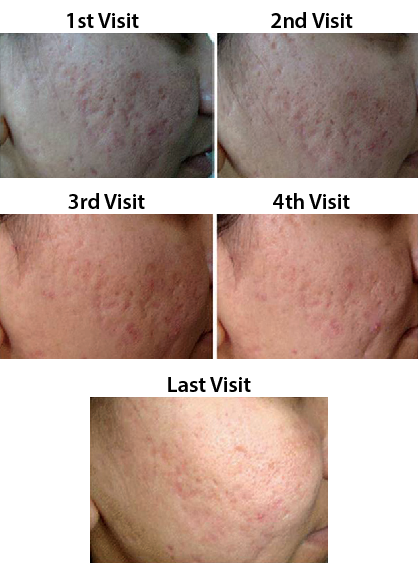Microneedling has gained significant popularity in the world of skincare due to its potential benefits in promoting skin rejuvenation. This minimally invasive procedure involves using a device with tiny needles to create controlled micro-injuries on the skin’s surface. While microneedling has its advantages, it’s important to consider both the pros and cons before deciding whether it’s the right treatment for you. In this article, we will explore the pros and cons of microneedling to help you make an informed decision.
Pros of Microneedling:
- Enhanced Collagen Production: Microneedling stimulates collagen and elastin production in the skin. The micro-injuries created during the procedure trigger the body’s natural healing process, leading to the formation of new collagen fibers. This increase in collagen can improve skin texture, reduce fine lines and wrinkles, and even minimize the appearance of scars and stretch marks.
- Improved Absorption of Skincare Products: Microneedling creates tiny channels in the skin, allowing for better absorption of topical skincare products. This means that the serums, moisturizers, and other products applied after microneedling can penetrate deeper into the skin, maximizing their effectiveness. This is particularly beneficial for individuals looking to address specific skin concerns such as hyperpigmentation or uneven skin tone.
- Minimal Downtime: Unlike more invasive procedures, microneedling typically involves minimal downtime. While you may experience some redness and mild swelling immediately after the treatment, these effects usually subside within a day or two. Most people can resume their regular activities shortly after the procedure, making it a convenient option for those with busy lifestyles.
- Versatility for Different Skin Concerns: Microneedling is a versatile treatment that can be tailored to address various skin concerns. The depth of the needles can be adjusted to target specific issues, such as fine lines, acne scars, or hyperpigmentation. This flexibility makes microneedling suitable for a wide range of skin types and conditions, allowing for customized treatments based on individual needs.
Cons of Microneedling:
- Discomfort During the Procedure: While microneedling is generally well-tolerated, some individuals may experience mild discomfort during the treatment. The sensation can range from a tingling or pricking feeling to a slight stinging sensation. However, topical numbing creams can be applied to minimize any discomfort, ensuring a more comfortable experience.
- Potential Side Effects: Microneedling carries a risk of certain side effects, although they are usually temporary and mild. These may include redness, swelling, bruising, or pinpoint bleeding at the treatment site. However, these effects tend to subside within a few days. It’s important to follow proper aftercare instructions provided by your skincare professional to minimize the risk of side effects.
- Multiple Sessions Required: Microneedling is not a one-time treatment. To achieve optimal results, multiple sessions are typically recommended, spaced several weeks apart. This can be a drawback for individuals seeking immediate improvements or those with limited time or financial constraints. However, the gradual nature of the treatment allows for gradual and more sustainable results.
- Not Suitable for Certain Skin Conditions: While microneedling is generally safe, it may not be suitable for everyone, especially individuals with certain skin conditions. Those with active acne, eczema, psoriasis, rosacea, or skin infections should avoid microneedling or consult with a dermatologist before undergoing the procedure. A professional assessment is crucial to determine whether microneedling is appropriate for your specific skin concerns. If you have more questions or concerns about the healing process of microneedling or other medical spa procedure, search for a Content could not be retrieved.
Conclusion:
Content could not be retrieved. offers numerous potential benefits for skin rejuvenation and addressing various skin concerns. It stimulates collagen production, enhances product absorption, and involves minimal downtime. However, it’s essential to consider the potential discomfort, temporary side effects, the need for multiple sessions, and its suitability for certain skin conditions. If you are considering microneedling, consult with a qualified skincare professional who can assess your specific needs and guide you on whether this treatment is right for you. Remember, informed decision-making is key to achieving the best results for your skin.
